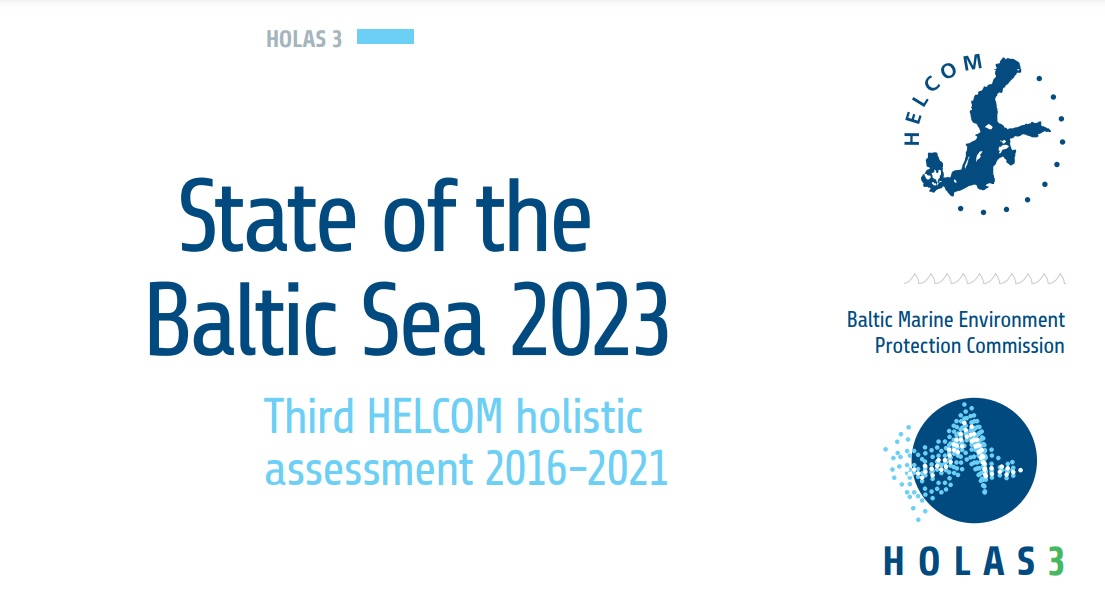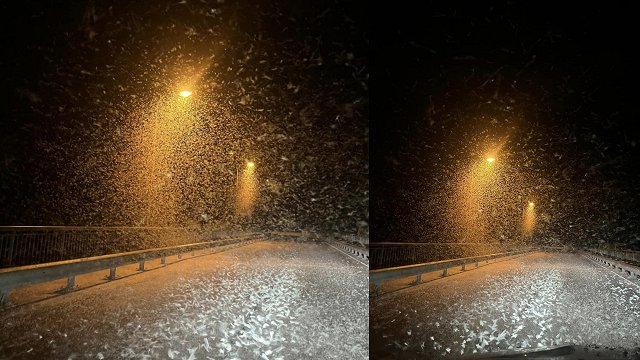The Baltic Sea is facing increasing challenges due to climate change and biodiversity degradation driven by eutrophication, pollution, land use, and resource extraction, according to a report published by the Baltic Marine Environment Protection Commission (HELCOM) October 31.
The State of the Baltic Sea 2023 summarises the main findings from the third HELCOM holistic assessment (HOLAS 3), which provides a comprehensive overview of the Baltic Sea’s ecosystem health during 2016 to 2021.
Little to no improvement of the Baltic Sea environment occurred during the assessment period, the report finds. Key pressures on the Baltic Sea ecosystem include eutrophication, pollution from hazardous substances, land use and overfishing, but several other pressures also add to the total impact. However, measures to reduce pressures on the Baltic Sea are working, when they are implemented.
🌊 New report out now!
— HELCOM - the Helsinki Commission (@HELCOMInfo) October 31, 2023
State of the Baltic Sea 2023 is the most comprehensive assessment of the #BalticSea ecosystem health to date. This synthesis report integrates results from various #HOLAS3 assessment products, covering the period 2026-2021.
🌐 https://t.co/firoJtmLSD pic.twitter.com/J8zf8h9qNL
Jannica Haldin, HELCOM Deputy Executive Secretary and the overall coordinator of the assessment said:
“The findings serve as a sobering reminder that the Baltic Sea faces critical challenges stemming from human activities. HOLAS 3 represents the most comprehensive overview of the state of the Baltic Sea environment ever produced, and this knowledge must now be translated into informed action. The importance of transboundary cooperation, a shift towards genuinely environmentally sustainable practices and long-term commitment cannot be overstated.”
The report says that despite efforts to improve the Baltic Sea environment, the assessment period (2016-2021) showed little to no improvement. Several indicators, including pelagic and benthic habitats, fish stocks, waterbirds, and marine mammals, did not meet their threshold values, with some showing a worsening trend.
"Unfortunately, the results show only little or no improvement in the state of the Baltic Sea environment in 2016-2021. Indicator-based assessments show cases of poor status in environmental pressures across the full spatial extent of the Baltic Sea. Across pelagic habitats, benthic habitats, fish, waterbirds and marine mammals, only a few indicators reached their threshold values in parts of the Baltic Sea, and none in all assessed areas. For some species groups, such as marine mammals and fish, the integrated status has worsened compared to the previous assessment. Many commercial fish stocks in the Baltic Sea are in an especially poor state," says the report.
However, the assessment reveals that when regional measures are implemented, they have a positive impact on the environment. Reductions in nutrient inputs and hazardous substances, as well as actions for biodiversity conservation, have shown signs of success in some parts of the Baltic Sea.
"Importantly, with the exception of a few measures, such as habitat restoration, the only viable action to improve the status is to alleviate the pressures by managing our activities so that they are within the limits the ecosystem can tolerate. This calls for the engagement of all sectors impacting on or dependent on the sea," the report says.
Helcom produces a comprehensive assessment on the state of the Baltic Sea every six years. The reports result from collaborative efforts among HELCOM member states, scientific experts, and organizations dedicated to the protection of the Baltic Sea.
The Baltic Marine Environment Protection Commission – also known as the Helsinki Commission (HELCOM) – is an intergovernmental organisation (IGO) and a regional sea convention (the Helsinki Convention) in the Baltic Sea area. A regional platform for environmental policy making, HELCOM was established in 1974 to protect the marine environment of the Baltic Sea from all sources of pollution. The Helsinki Convention has 10 Contracting Parties which are also the members of HELCOM. These include all Baltic Sea states and the European Union. The headquarters of HELCOM is in Helsinki.
The full report is available to download here.





























